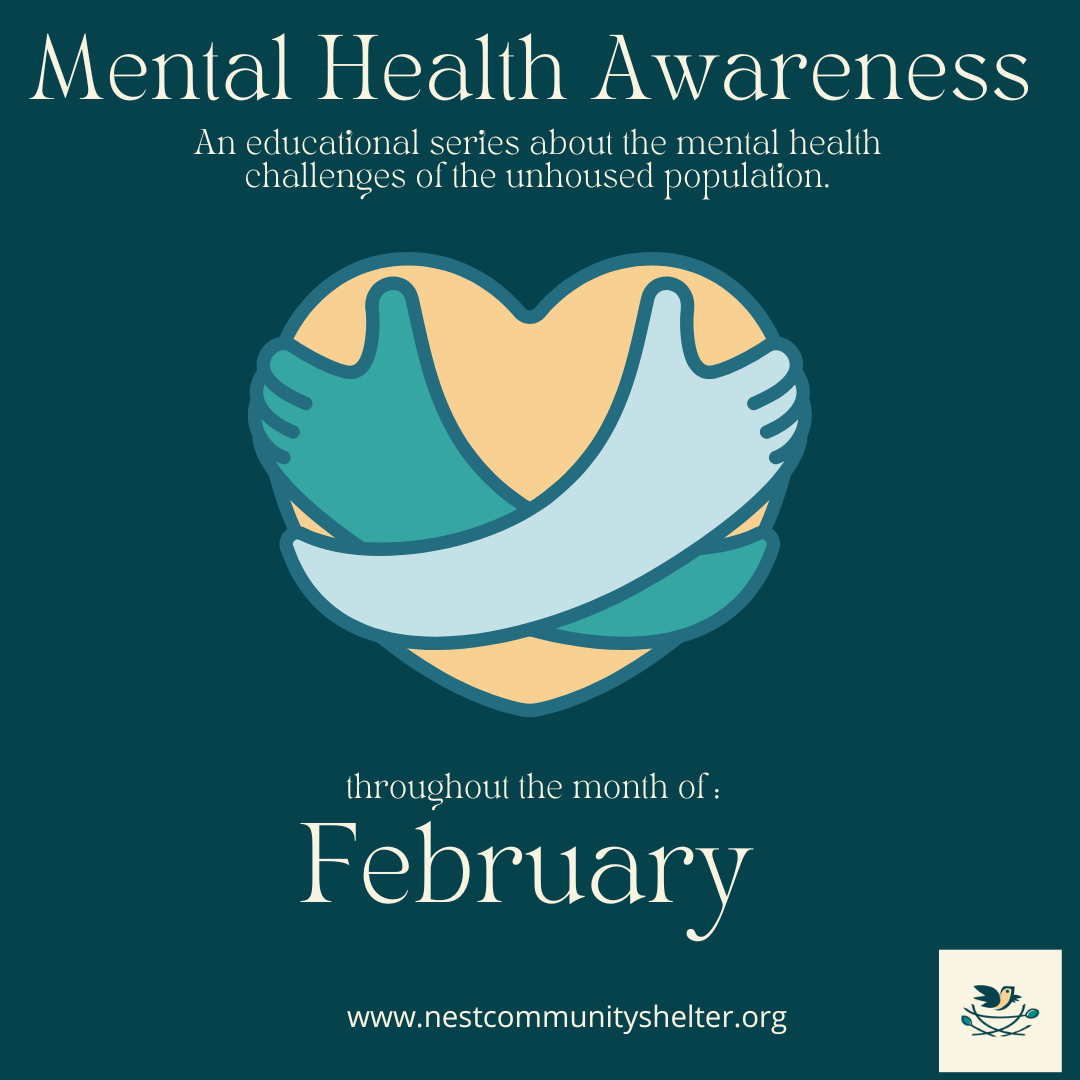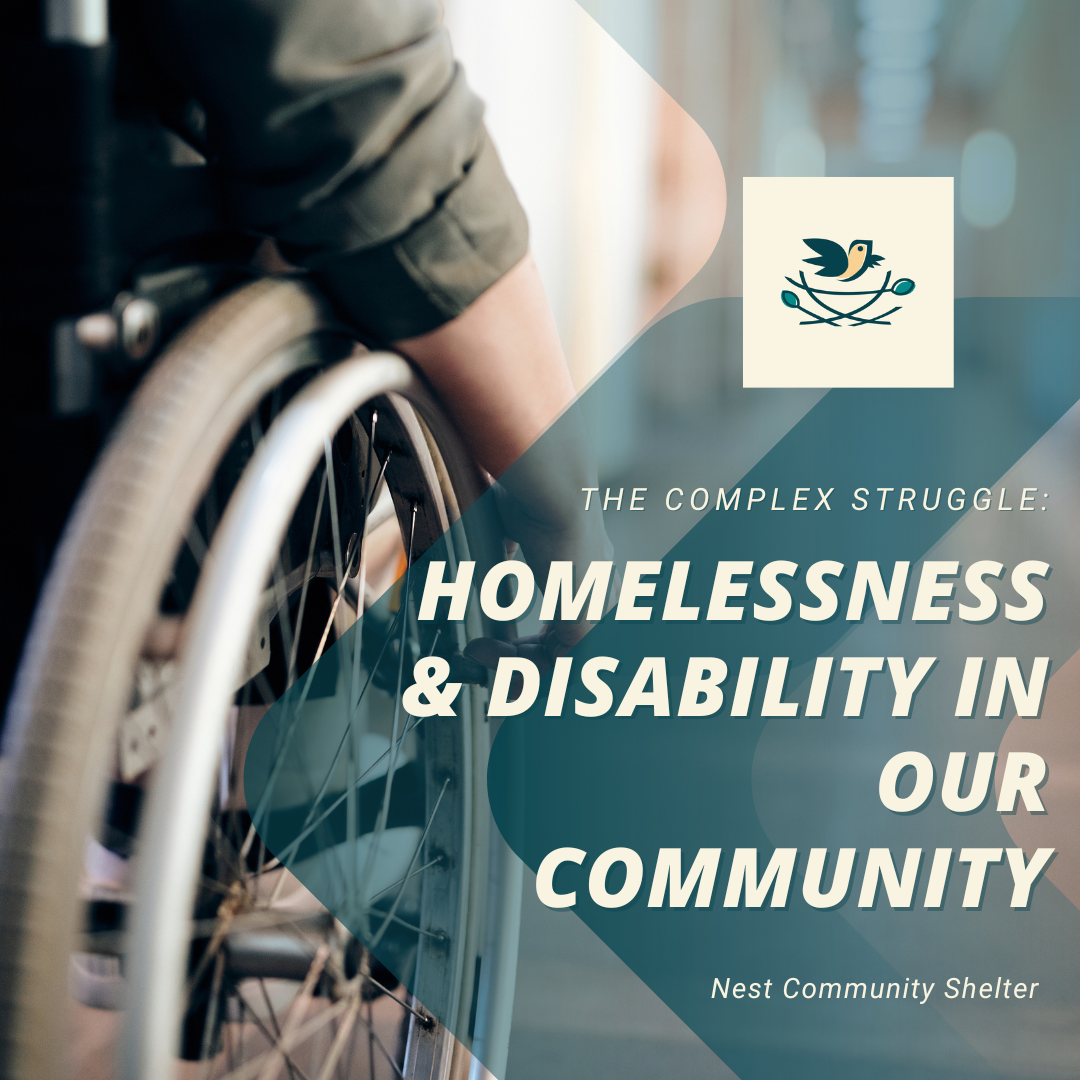
In the month of February, we going to focus on sharing information about mental health and substance abuse issues within the unhoused population as a whole. The goal is to educate our larger population and surrounding communities on this issue.
For many individuals experiencing homelessness, mental illness is intricately connected to being unhoused, creating a cyclical pattern that is challenging to break. Individuals experiencing mental health disorders, such as depression, anxiety, or schizophrenia, often face difficulties maintaining stable employment and housing. The lack of a consistent support system can exacerbate mental health conditions, leading to a downward spiral that eventually culminates in homelessness. Access to mental health support is extremely challenging for those who are unhoused due to the unique nature of their situation. Many homeless individuals turn to substances as a coping mechanism for their mental health struggles, thus exacerbating an underlying mental health issue. The use of drugs or alcohol provides a temporary escape from the harsh realities of life on the streets, offering a fleeting sense of relief. However, this coping mechanism often worsens their mental health conditions and deepens their vulnerability, perpetuating the cycle of homelessness. Substance abuse does not impact the entire unhoused population, nor do mental health issues. However, the numbers are significant for the population as a whole. According to the Substance Abuse and Mental Health Services Administration, 21% of the unhoused population in the United States is afflicted with a serious mental health issue. They go on to say that there are higher rates of substance abuse and suicide amongst our unhoused population.
The A Small Sample of the Exacerbation of Mental Health Issues by Homelessness:
Homelessness itself acts as a catalyst, exacerbating existing mental health issues and creating ongoing and oppressive challenges for those experiencing homelessness. The harsh conditions of life on the streets amplify stress, anxiety, and depression, further compromising the mental well-being of this vulnerable population.
- Constant State of Alertness: Homeless individuals often find themselves in a constant state of alertness as they navigate the challenges of survival on the streets. This heightened stress response can contribute to the development or worsening of mental health disorders, making it even more difficult for them to break free from the cycle of homelessness. This constant state of alertness impacts all aspects of life, including the ability to get deep, restorative sleep. When sleeping out in the elements, potential dangers are constant.
- Isolation and Loneliness: The lack of a stable support system, coupled with the social isolation that comes with homelessness, intensifies feelings of loneliness. Social connections are vital for mental health, and the absence of these connections can contribute to the deterioration of one’s mental well-being. With the nature of being unhoused comes a more transient lifestyle for some, which also leads to the inability to make deep, lasting connections within a community.
- Vulnerability to Victimization: Homeless individuals are more susceptible to various forms of victimization, including violence and exploitation. These traumatic experiences can exacerbate existing mental health issues and create new ones, leading to a vicious cycle of trauma and homelessness.
Addressing the complex link between homelessness and mental illness requires a multifaceted approach that encompasses increased resources, de-stigmatization of mental health, improved accessibility to treatment, and targeted outreach programs. Breaking the cycle of homelessness must being with addressing mental health struggles of this vulnerable population. By understanding some of the intricate challenges faced by homeless individuals, we, as a community, can work towards creating a more compassionate and supportive environment that promotes mental well-being and helps break the cycle of homelessness. Throughout the month of February, we will be discussing many aspects of the mental health issues of the unhoused population, the causes and resulting issues that make treating homelessness so challenging, and the contributing factors to these struggles for our unhoused population.



